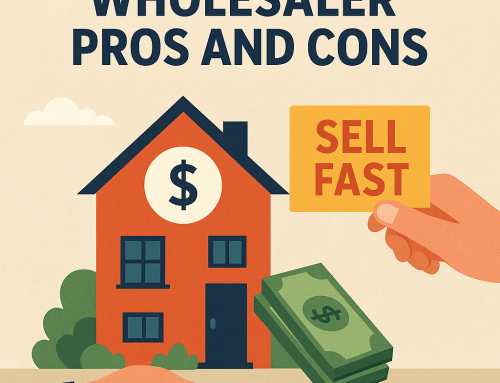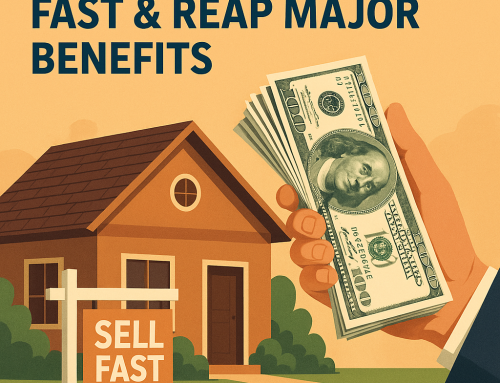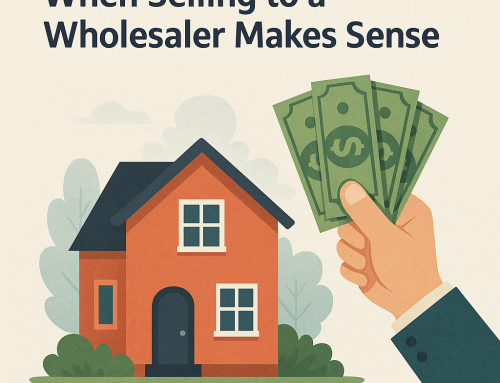- Working with a Wholesaler
- Pros
- Cons
- Working with a Real Estate Agent
- Pros
- Cons
- Making the Right Choice
- Conclusion
When homeowners find themselves needing to sell quickly, they often consider two primary avenues: working with a wholesaler or enlisting the help of a real estate agent. Each option comes with its own set of benefits and drawbacks that can significantly impact how you sell your home fast and the actual cash for home you receive. Understanding these differences can help you make a more informed decision that aligns with your needs.
Working with a Wholesaler
Wholesalers identify properties that are undervalued or in distress, negotiate a purchase contract with homeowners, and then assign that contract to an investor for a profit. Here are some pros and cons of this approach:
Pros
1. Speed of Transaction: Wholesalers are motivated to close deals quickly, so if you need to sell immediately, this can be an appealing option. You may have cash in hand in a matter of days instead of waiting months.
2. Less Paperwork: The process with a wholesaler tends to have fewer formalities compared to traditional sales. This can minimize the stress and time commitments involved.
3. No Repairs Necessary: If your home requires significant repairs, wholesalers often buy properties as-is. You can bypass the hassle of renovation to show your home in the best light.
Cons
1. Lower Offers: While you get quick cash for your home, wholesaler offers might be considerably lower than what you could potentially receive through a traditional sale.
2. Limited Market Exposure: Unlike real estate agents who can market your home broadly, wholesalers typically have a limited network of investors. This can restrict your opportunity to get the best price.
3. Less Transparency: The wholesaling process can sometimes lack transparency. Understanding the full process and ensuring you’re not oversold can be challenging.
Working with a Real Estate Agent
Real estate agents help homeowners list their properties on the market, reaching a broader audience. While this path usually takes longer, it carries certain advantages and disadvantages.
Pros
1. Potential Higher Sale Price: Real estate agents can often secure higher offers for your home compared to wholesalers. They have access to real estate market data and a network of potential buyers.
2. Professional Marketing: Agents utilize various marketing channels, including MLS listings, social media, and open houses, ensuring maximum exposure for your property.
3. Guidance Throughout the Process: Selling a home can be complex, and experienced real estate agents offer guidance on pricing, marketing, negotiations, and transactions, making the process smoother for you.
Cons
1. Longer Sales Process: If you’re looking to sell a home fast, the traditional route with an agent may not align with your timeline. It can take weeks or even months to find a buyer.
2. Commission Fees: Agents typically charge a commission fee, which can reduce the net cash for home you receive after the sale. This fee can range from 5% to 6% of the sale price.
3. Required Repairs and Updates: To attract buyers and get a favorable price, you may need to invest in repairs or updates to your home, which can require both time and money.
Making the Right Choice
Determining whether to sell your home through a wholesaler or a real estate agent will largely depend on your individual situation. If speed is your priority and you’re willing to accept a lower cash offer, a wholesaler might be your best option. Conversely, if you’re not in a rush and seek to maximize your sale price, collaborating with a real estate agent may be the better approach.
Conclusion
Both wholesaler and real estate agent routes offer unique advantages and challenges when it comes to selling your home. By evaluating your timeline, financial situation, and personal preferences, you can make an informed decision that best suits your needs. Whether you choose to sell your home fast through a wholesaler or take the traditional route with an agent, understanding the pros and cons of each will position you for success in the sale of your property.




